English | January 9, 2025 | ISBN: 8306238818 | 157 pages | EPUB | 1.74 Mb
Read moreTag Archives: Philosophy
Oxford Studies in Medieval Philosophy Volume 9
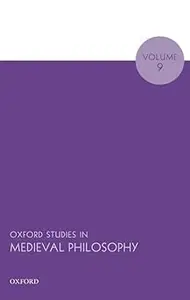
Free Download Robert Pasnau, "Oxford Studies in Medieval Philosophy Volume 9"
English | ISBN: 0192844636 | 2021 | 304 pages | EPUB | 558 KB
Oxford Studies in Medieval Philosophy showcases the best scholarly research in this flourishing field. The series covers all aspects of medieval philosophy, including the Latin, Arabic, and Hebrew traditions, and runs from the end of antiquity into the Renaissance. It publishes new work by leading scholars in the field, and combines historical scholarship with philosophical acuteness. The papers will address a wide range of topics, from political philosophy to ethics, and logic to metaphysics. OSMP is an essential resource for anyone working in the area.
Moral Obligation (Social Philosophy and Policy)
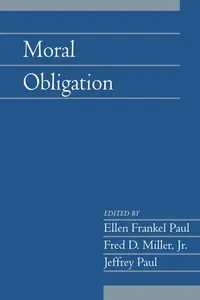
Free Download Moral Obligation (Social Philosophy and Policy) by Ellen Frankel Paul, Fred D. Miller Jr, Jeffrey Paul
English | July 16, 2010 | ISBN: 0521168961 | 345 pages | PDF | 14 Mb
The notion of obligation-of what an agent owes to himself, to others, or to society generally-occupies a central place in morality. But what are the sources of our moral obligations, and what are their limits? To what extent do obligations vary in their stringency and severity, and does it make sense to talk about imperfect obligations, that is, obligations that leave the individual with a road range of freedom to determine how and when to fulfill them? The twelve essays in this volume address these and other questions and explore related issues. Some of them discuss broad theoretical questions, some essays look at moral reasons for action. Others discuss specific moral obligations or the tensions that may exist between our obligations and our other concerns.
In Search of a Theory of Everything The Philosophy Behind Physics
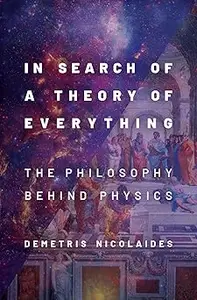
Free Download Demetris Nicolaides, "In Search of a Theory of Everything: The Philosophy Behind Physics"
English | ISBN: 019009835X | 2020 | 186 pages | MOBI | 2 MB
In Search of a Theory of Everything takes readers on an adventurous journey through space and time on a quest for a unified "theory of everything" by means of a rare and agile interplay between the natural philosophies of influential ancient Greek thinkers and the laws of modern physics. By narrating a history and a philosophy of science, theoretical physicist Demetris Nicolaides logically connects great feats of critical mind and unbridled human imagination in their ambitious quest for the theory that will ultimately explain all the phenomena of nature via a single immutable overarching law.
Oxford Studies in Medieval Philosophy Volume 8
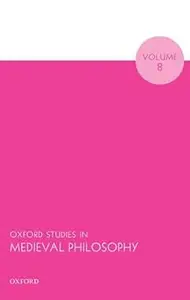
Free Download Robert Pasnau, "Oxford Studies in Medieval Philosophy Volume 8"
English | ISBN: 0198865740 | 2020 | 304 pages | PDF | 2 MB
Oxford Studies in Medieval Philosophy showcases the best scholarly research in this flourishing field. The series covers all aspects of medieval philosophy, including the Latin, Arabic, and Hebrew traditions, and runs from the end of antiquity into the Renaissance. It publishes new work by leading scholars in the field, and combines historical scholarship with philosophical acuteness. The papers will address a wide range of topics, from political philosophy to ethics, and logic to metaphysics. OSMP is an essential resource for anyone working in the area.
Practices of Truth in Philosophy Historical and Comparative Perspectives
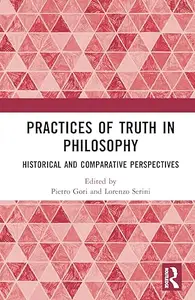
Free Download Practices of Truth in Philosophy: Historical and Comparative Perspectives
by Pietro Gori, Lorenzo Serini
English | 2024 | ISBN: 1032219130 | 312 Pages | True ePUB | 2.4 MB
Bergson in Britain Philosophy and Modernist Painting, c. 1890-1914
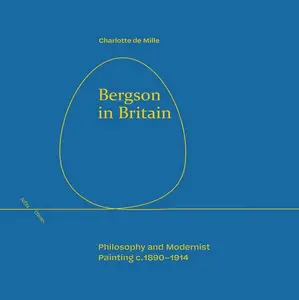
Free Download Bergson in Britain: Philosophy and Modernist Painting, c. 1890-1914 (Refractions) by Charlotte de Mille
English | November 22, 2023 | ISBN: 147449238X, 9781474492416 | True EPUB | 400 pages | 1.9 MB
Charlotte de Mille shows that the reception of the philosophy of Henri Bergson by British artists and critics was far more wide spread and of far greater importance in the UK than has been previously thought.
Atheisms (The British Society for the Philosophy of Religion Series)
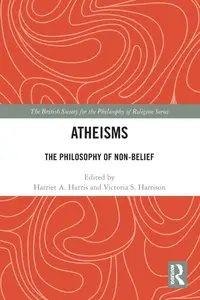
Free Download Atheisms (The British Society for the Philosophy of Religion Series) by Harriet A. Harris, Victoria S. Harrison
English | October 8, 2024 | ISBN: 1032470984 | 196 pages | PDF | 1.74 Mb
Questions about how to negotiate belief and non-belief in social and public spheres are attracting an increasing amount of attention from academics in a range of disciplines, and from concerned members of the public. This volume addresses the emergence of ‘new atheism’ and the developing ‘spiritual but not religious’ phenomenon. Avoiding simplistic accounts of atheism, and of religious belief, it provides readers with insight into a wide range of nuances within theism and atheism, as well as spiritual practice and faith. The chapters by an international panel of contributors focus on topics such as: a typology or cartography of atheisms and agnosticism; contrasting types of atheism within Christianity and Buddhism; questions about cognitive and doxastic stances in atheisms; theist rejections of and atheist embracing of ‘God’; and atheist aesthetics. Reaching beyond the Christian tradition, the book will be of particular interest to scholars of the philosophy of religion, as well as religious studies and theology more generally.
A Rhetorics of the Word A Philosophy of Christian Life, Part II (PDF)
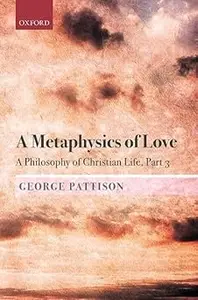
Free Download George Pattison, "A Rhetorics of the Word: A Philosophy of Christian Life, Part II"
English | ISBN: 0198813511 | 2020 | 288 pages | PDF | 2 MB
A Rhetorics of the Word is the second volume of a three-part philosophy of Christian life. It approaches Christian life as expressive of a divine calling or vocation. The word Church (ekklesia) and the role of naming in baptism indicate the fundamental place of calling in Christian life. However, ideas of vocation are difficult to access in a world shaped by the experience of disenchantment. The difficulties of articulating vocation are explored with reference to Weber, Heidegger, and Kierkegaard. These are further connected to a general crisis of language, manifesting in the degradation of political discourse (Arendt) and the impact of new communications technology on human discourse. This impact can be seen as reinforcing an occlusion of language in favour of rationality already evidenced in the philosophical tradition and technocratic management. New possibilities for thinking vocation are pursued through the biblical prophets (with emphasis on Buber’s and Rosenzweig’s reinterpretation of the call of Moses), Saint John, and Russian philosophies of language (Florensky to Bakhtin). Vocation emerges as bound up with the possibility of being name-bearers, enabling a mutuality of call and response. This is then evidenced further in ethics and poetics, where Levinas and Hermann Broch (The Death of Virgil) become major points of reference. In conclusion, the themes of calling and the name are seen to shape the possibility of love-the subject of the final part of the philosophy of Christian life:
A Rhetorics of the Word A Philosophy of Christian Life, Part II (EPUB)
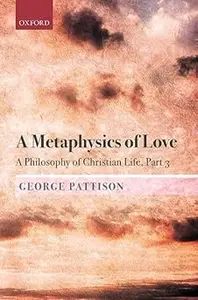
Free Download George Pattison, "A Rhetorics of the Word: A Philosophy of Christian Life, Part II"
English | ISBN: 0198813511 | 2020 | 288 pages | EPUB | 2 MB
A Rhetorics of the Word is the second volume of a three-part philosophy of Christian life. It approaches Christian life as expressive of a divine calling or vocation. The word Church (ekklesia) and the role of naming in baptism indicate the fundamental place of calling in Christian life. However, ideas of vocation are difficult to access in a world shaped by the experience of disenchantment. The difficulties of articulating vocation are explored with reference to Weber, Heidegger, and Kierkegaard. These are further connected to a general crisis of language, manifesting in the degradation of political discourse (Arendt) and the impact of new communications technology on human discourse. This impact can be seen as reinforcing an occlusion of language in favour of rationality already evidenced in the philosophical tradition and technocratic management. New possibilities for thinking vocation are pursued through the biblical prophets (with emphasis on Buber’s and Rosenzweig’s reinterpretation of the call of Moses), Saint John, and Russian philosophies of language (Florensky to Bakhtin). Vocation emerges as bound up with the possibility of being name-bearers, enabling a mutuality of call and response. This is then evidenced further in ethics and poetics, where Levinas and Hermann Broch (The Death of Virgil) become major points of reference. In conclusion, the themes of calling and the name are seen to shape the possibility of love-the subject of the final part of the philosophy of Christian life:
